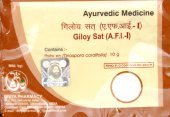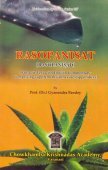I: 18 definitions
Introduction:
I means something in Hinduism, Sanskrit, the history of ancient India, Marathi, Hindi, biology, Tamil. If you want to know the exact meaning, history, etymology or English translation of this term then check out the descriptions on this page. Add your comment or reference to a book if you want to contribute to this summary article.
Alternative spellings of this word include Ee.
Images (photo gallery)
(+131 more images available)
In Hinduism
Vyakarana (Sanskrit grammar)
Source: Wikisource: A dictionary of Sanskrit grammar1) I (इ).—The vowel इ (i), representing all its eighteen forms viz. short, long protracted, acute, grave, circumflex, pure and nasalised; e.g. इ (i) in यस्येति च (yasyeti ca) P.VI.4.128;
2) I.—Uṅādi affix ई
3) I.—Tad-affix इच् (ic)(इ)applied to Bahuvrihi compounds in the sense of exchange of action or as seen in words like द्विदण्डि (dvidaṇḍi) e.g. केशाकेशि, दण्डादण्डि, द्विमुसलि (keśākeśi, daṇḍādaṇḍi, dvimusali) etc. cf. इच् कर्मव्यतिहारे (ic karmavyatihāre) P.V.4. 127,also V.4.128;
4) I.—kṛt. affix कि (ki) (इ) cf. उपसर्गे घोः किः (upasarge ghoḥ kiḥ) P.III.3.92;
5) I.—Augment इट् (iṭ) (इ); see इट् (iṭ)
6) I.—Conjugational affix इट् (iṭ) of the 1st pers. sing. Ātm.
--- OR ---
Ī (ई).—The long vowel ई (ī) which is technically included in the vowel इ (i) in Pāṇini's alphabet being the long tone of that vowel; (2) substitute ई (ī) for the vowel आ (ā) of the roots घ्रा (ghrā) and ध्मा (dhmā) before the frequentative sign यङ् (yaṅ) as for example in जेघ्रीयते, देध्मीयते (jeghrīyate, dedhmīyate), cf. P.VII. 4.31; (3) substitute ई (ī) for the vowel अ (a) before the affixes च्वि (cvi) and क्यच् (kyac) as, for instance, in शुक्लीभवति, पुत्रीयति (śuklībhavati, putrīyati) etc.; cf.P.VII.4.32, 33; (4) substitute ई (ī) for the vowel आ (ā) at the end of reduplicated bases as also for the vowel आ (ā) of bases ending in the conjugational sign ना (nā), e.g. मिमीध्वे, लुनीतः (mimīdhve, lunītaḥ) etc.; cf P.VI. 4.113; (5) substitute ई (ī) for the loc. case affix इ (i) (ङि (ṅi)) in Vedic Literature, e.g. सरसी (sarasī) for सरसि (sarasi) in दृतिं न शुश्कं सरसी शयानम् (dṛtiṃ na śuśkaṃ sarasī śayānam),: cf. Kāś. on P. VII.1.39: (6) tad. affix ई (ī) in the sense of possession in Vedic Literature as for instance in रथीः,सुमङ्गलीः (rathīḥ, sumaṅgalīḥ), cf. Kāś on. P.V.2.109: (7) the fem. affix ई (ī) (ङीप्, ङीञ् (ṅīp, ṅīñ) or ङीन् (ṅīn)); cf. P.IV.1.58, 15-39, IV.1.40-65, IV.1.13.

Vyakarana (व्याकरण, vyākaraṇa) refers to Sanskrit grammar and represents one of the six additional sciences (vedanga) to be studied along with the Vedas. Vyakarana concerns itself with the rules of Sanskrit grammar and linguistic analysis in order to establish the correct context of words and sentences.
Purana and Itihasa (epic history)
Source: archive.org: Puranic Encyclopedia1) I (इ).—This letter means Kāmadeva. (Agni Purāṇa, Chapter 348).
2) Ī (ई).—This letter means 'Rati' and Lakṣmī. Agni Purāṇa, Chapter 348).

The Purana (पुराण, purāṇas) refers to Sanskrit literature preserving ancient India’s vast cultural history, including historical legends, religious ceremonies, various arts and sciences. The eighteen mahapuranas total over 400,000 shlokas (metrical couplets) and date to at least several centuries BCE.
India history and geography
Source: Cologne Digital Sanskrit Dictionaries: Indian Epigraphical GlossaryI.—ḻaiya-nāyanār (SITI), the same as the god Subrahmaṇya. Note: i is defined in the “Indian epigraphical glossary” as it can be found on ancient inscriptions commonly written in Sanskrit, Prakrit or Dravidian languages.
--- OR ---
Ī.—ḻa-kkāśu, also called īḻa-kkaruṅ-kāśu and karuṅ-kāśu (SITI); the Ceylonese coin. Note: ī is defined in the “Indian epigraphical glossary” as it can be found on ancient inscriptions commonly written in Sanskrit, Prakrit or Dravidian languages.

The history of India traces the identification of countries, villages, towns and other regions of India, as well as mythology, zoology, royal dynasties, rulers, tribes, local festivities and traditions and regional languages. Ancient India enjoyed religious freedom and encourages the path of Dharma, a concept common to Buddhism, Hinduism, and Jainism.
Biology (plants and animals)
Source: Wisdom Library: Local Names of Plants and DrugsI [ꯢ] in the Manipuri language is the name of a plant identified with Saccharum spontaneum Saccharum spontaneum L. from the Poaceae (Grass) family. For the possible medicinal usage of i, you can check this page for potential sources and references, although be aware that any some or none of the side-effects may not be mentioned here, wether they be harmful or beneficial to health.

This sections includes definitions from the five kingdoms of living things: Animals, Plants, Fungi, Protists and Monera. It will include both the official binomial nomenclature (scientific names usually in Latin) as well as regional spellings and variants.
Languages of India and abroad
Marathi-English dictionary
Source: DDSA: The Molesworth Marathi and English Dictionaryi (इ).—
--- OR ---
i (इ).—The third vowel. It corresponds with I in pin, sin, grin. [place, way, quarter, direction.
--- OR ---
ī (ई).—
--- OR ---
ī (ई).—The fourth vowel. It corresponds with ee in green; but is here represented by I', i.
--- OR ---
ī (ई).—ind A particle used in mocking or laughing at. Amongst women only. Ex. ī ātāṃ kaśī bhyālī gē. 2 (For āī Mother.) A particle of courtesy attached to the names of females; as tārāī for tārā.
Source: DDSA: The Aryabhusan school dictionary, Marathi-Englishi (इ).—The third vowel.
--- OR ---
ī (ई).—The fourth vowel.
Marathi is an Indo-European language having over 70 million native speakers people in (predominantly) Maharashtra India. Marathi, like many other Indo-Aryan languages, evolved from early forms of Prakrit, which itself is a subset of Sanskrit, one of the most ancient languages of the world.
Sanskrit dictionary
Source: DDSA: The practical Sanskrit-English dictionaryI (इ).—The third letter of the Devanāgarī alphabet.
--- OR ---
I (इ).—[a-iñ]
1) Name of Kāmadeva; cf. Kirātārjunīya 15.45.
2) the number 1; Gīrvaṅa. ind. An interjection of (1) anger; (2) calling; (3) compassion; (4) reproach; (5) wonder; (6) sorrow; (7) distress. cf. इः कामः स्थाणुरिन्द्रोऽर्को वरुणः पादयो द्विपः । शुचिः श्रीमानजो बालो विरिञ्चिः कृत्तिकासुतः (iḥ kāmaḥ sthāṇurindro'rko varuṇaḥ pādayo dvipaḥ | śuciḥ śrīmānajo bālo viriñciḥ kṛttikāsutaḥ) || Enm.
Derivable forms: iḥ (इः).
--- OR ---
I (इ).—I. 2 P. (In Dhātup. written as iṇ) (eti, iyāya, agāt, etum, ita)
1) To go, go to or towards, come to or near; शशिनं पुनरेति शर्वरी (śaśinaṃ punareti śarvarī) R.8.56; ईयुर्भरद्वाजमुनेर्निकेतम् (īyurbharadvājamunerniketam) Bk. 3.4.
2) To arrive at, reach, obtain, attain to, go to or be reduced to a particular state, fall into; निर्बुद्धिः क्षयमेति (nirbuddhiḥ kṣayameti) Mṛcchakaṭika 1.14 goes to (ruin, is ruined; so vaśam, śatrutvam, śūdratām &c.).
3) To return.
4) To go away, retire; elapse, pass.
5) To spring from, come or arise from.
6) To undertake anything (with acc.); सत्रमायन् (satramāyan) Vāj.
7) To ask, beg.
8) To be; to appear.
9) To be employed in, go on with, be in a particular condition or relation, with a part. or instr.; कृषन्तो ह स्म वै वपन्तो यन्ति (kṛṣanto ha sma vai vapanto yanti) Śat. Br.; गवामयनेनेयुः (gavāmayaneneyuḥ) Kāty.
1) To thrive, prosper. II.1 U. = अय् (ay) q. v. III.4 Ā.
1) To come, appear.
2) To run, wander.
3) To go quickly or repeatedly.
4) To ask, request. -Caus. To cause to go or come. [cf. L. eo; Gr. eimi with एमि (emi)].
--- OR ---
Ī (ई).—(m.) Name of Kāmadeva, Cupid. f. Name of Lakṣmī. ind. An interjection of (1) dejection; (2) pain; (3) sorrow; (4) anger; (5) compassion; (6) perception or consciousness; (7) calling; cf. also ईरीश्वरो भवेच्छत्रुः पुरुषः करुणोऽरुणः । अप्रजाः सुप्रजाः शङ्कुर्मुकुरो नकुलोऽकुलः (īrīśvaro bhavecchatruḥ puruṣaḥ karuṇo'ruṇaḥ | aprajāḥ suprajāḥ śaṅkurmukuro nakulo'kulaḥ) || Ek.
Derivable forms: īḥ (ईः).
--- OR ---
Ī (ई).—I. 4 Ā. (īyate) To go. -II. 2 P.
1) To go.
2) To shine.
3) To pervade.
4) To desire, wish.
5) To throw.
6) To eat.
7) To beg (Ā).
8) To become pregnant.
Source: Cologne Digital Sanskrit Dictionaries: Shabda-Sagara Sanskrit-English DictionaryI (इ).—The third vowel of the alphabet, corresponding to I short, and pronounced as that letter in kill, &c.
--- OR ---
I (इ).—m. (iḥ) A name of Kamadeva. Ind. An interjection. 1. Of anger. 2. Of calling. 3. Of sorrow or distress. 4. Of compassion. E. i to go, kvip aff.
--- OR ---
I (इ).—r. 1st cl. (ayati) To go, to go to or towards: with ut prefixed, to rise or ascend, as the sun, &c. with abhi and ut the same, or to rise in the world, to prosper. (ṅa) iṅ and adhi always prefixed adhīṅ r. 2nd cl. (adhīte) To study, to learn, to read over or through. (ka) ik and adhi prefixed r. 2nd cl. (adhyeti) To remember, to think of. (ṇa) iṇ r. 2nd cl. (eti) To go. This root takes many prefixes, implying with ati, 1. To surpass, to surmount. 2. To pass, to spend time or to elapse as time. With anu, 1. To go after, to follow. 2. To go like, to imitate in going. 3. To succeed. With abhi, 1. To obtain, to get. 2. To proceed, to go on. 3. To go. 4. To approach. 5. To serve or worship. With apa, 1. To go away, to depart. 2. To perish. With abhi and upa, To arrive. With upa, 1. To receive. 2. To aid or assist. 3. To approach or go near so. With nir, To go forth or out from. With prati, 1. To trust, to confide. 2. To follow, to be added or subjoined to. 3. (In the passive verb,) To become evident or manifest. With vi, To expend, to waste, to depart. With sam and upa, To obtain, &c.
--- OR ---
Ī (ई).—The fourth letter of the alphabet, corresponding to I long, having the sound of ee in feel, and distinguished by an accent from the former, as i.
--- OR ---
Ī (ई).—m. (īḥ) A name of Kandarpa. f. (īḥ) A name of Lakshmi. ind. An interjection of, 1. Pain. 2. Anger. 3. Consciousness or perception. 4. Consideration. 5. Compassion.
--- OR ---
Ī (ई).—r. 2nd cl. (eti) 1. To go. 2. To pervade. 3. To conceive or become pregnant. 4. To desire. 5. To throw or direct. 6. To eat. This root is not generally admitted, though it occurs in composition, as with ut (udīte) To appear. r. 4th cl. (ṅa) īṅ (īyate) To go.
Source: Cologne Digital Sanskrit Dictionaries: Benfey Sanskrit-English DictionaryI (इ).—A. ii. 2, [Parasmaipada.] (in epic poetry also [Ātmanepada.] Mahābhārata 5, 192). 1. To go,
— With the prep. ati ati, A. I, 1. To pass over, [Rāmāyaṇa] 1, 21, 19; 3, 74, 7. 2. To surpass, [Mānavadharmaśāstra] 8, 151, also in the pass. voice or Ī, i. 4, [Ātmanepada.], Mahābhārata 2, 1473. 3. To conquer, [Hitopadeśa] i. [distich] 18. 4. To pass into, to enter, [Mānavadharmaśāstra] 4, 73. 5. To avoid, [Mānavadharmaśāstra] 12, 90. 6. To trespass, [Rāmāyaṇa] 2, 112, 18. The partic. of the pf. pass. atīta, 1. Passed, [Mānavadharmaśāstra] 7, 178. 2. Dead, [Mānavadharmaśāstra] 5, 71. 3. Having passed over, [Meghadūta, (ed. Gildemeister.)] 30. 4. Conquered, Vedāntas; in
— With abhyati abhi-ati, 1. To pass over, [Rāmāyaṇa] 2, 70, 27. 2. To pass away, Mahābhārata 3, 12547. abhyatīta, Dead, [Mānavadharmaśāstra] 4, 252.
— With vyati vi-ati, 1. To pass over, [Rāmāyaṇa] 2, 113, 4. 2. To conquer, Mahābhārata 1, 6257. 3. To swerve (with the abl.), [Rāmāyaṇa] 4, 17, 32. 4. To disregard, Naiṣ. 5, 113. 5. To pass away, [Rāmāyaṇa] 2, 50, 37. vyatīta. 1. Passed,
— With samati sam-ati, 1. To pass. [Rāmāyaṇa] 2, 71, 17; Mahābhārata 3, 10435. 2. To surpass, [Kirātārjunīya] 5, 20. 3. To avoid, [Bhagavadgītā, (ed. Schlegel.)] 14, 26. 4. To pass away, [Rāmāyaṇa] 2, 27, 19.
— With adhi adhi, [Ātmanepada.] (in epic poetry also [Parasmaipada.]), To study, [Mānavadharmaśāstra] 2, 107; Mahābhārata 3, 13689 ([Parasmaipada.]); to learn. Mahābhārata 3, 10713 ([Parasmaipada.]). Ptcple. of the pres. compounded with an-, anadhīyāna Unlearned, [Mānavadharmaśāstra] 2, 157. adhīta, in pass. and act. sense, Learned, having learned, [Sāvitryupākhyāna] 6, 11; [Hitopadeśa] [prologue.] [distich] 23. dus-, adj. Learned wrongly, [Cāṇakya] 98.
— [Causal.] adhy-āpaya, To teach (with two acc.), [Mānavadharmaśāstra] 2, 140.
— With prādhi pra -adhi in prādhīta, Well-read, [Mānavadharmaśāstra] 7, 85.
— With pratyadhi prati-adhi, To study one by one, Mahābhārata 3, 4182.
— With samadhi sam-adhi, To peruse, Mahābhārata 6, 93.
— With anu anu, 1. To follow, [Rāmāyaṇa] 6, 10, 4. 2. To visit, [Nala] 2, 9. 3. To obey, Mahābhārata 3, 1143. anvita, 1. Following, [Rāmāyaṇa] 3, 40, 31. 2. Possessed of, having, [Pañcatantra] iii. [distich] 238; [Rāmāyaṇa] 1, 7, 16; 3, 20, 3. 3. Followed, rendered, [Śākuntala, (ed. Böhtlingk.)] [distich] 141.
--- OR ---
Ī (ई).—see i.
Source: Cologne Digital Sanskrit Dictionaries: Cappeller Sanskrit-English DictionaryI (इ).—1. [pronoun] stem of 3^d [person or personal]
--- OR ---
I (इ).—2. eti ayate ayati (iyati), ite & iyate (only —°), [Passive] īyate, [participle] ita (mostly —°) go, come (punar again or back); go to or towards, approach ([accusative]); attain, get; go or come from ([ablative]); cease, pass away; go on, continue ([with] [present] [participle]); be engaged in ([instrumental]); [with] [accusative] of an [abstract] often = become or get [with] a [participle] or adj. (cf. gam); īyate, [participle] īyāna (also [with] pass. mg), 1. [plural] īmahe move, speed, hasten to ([accusative], [dative] or [locative]), approach with prayers, implore, ask, request ([with] 2 [accusative]).
Source: Cologne Digital Sanskrit Dictionaries: Monier-Williams Sanskrit-English Dictionary1) I (इ):—1. i the third vowel of the alphabet, corresponding to i short, and pronounced as that letter in kill etc.
2) 2. i ind. an interjection of anger, calling, sorrow, distress, compassion, etc., ([gana] cādi, [Pāṇini 1-4, 57, etc.])
3) 3 base of Nom. and Acc. sg. [dual number] and [plural] of the demonstrative pronoun idam, ‘this’ or ‘that’
4) cf. itara, itas, iti id, idā, iyat, iva, iha: cf. also [Latin] id; [Gothic] ita; [English] it; Old [German] iz; [modern] [German] es.
5) 4. i m. Name of Kāmadeva, [cf. Lexicographers, esp. such as amarasiṃha, halāyudha, hemacandra, etc.]
6) 5. i [class] 2. [Parasmaipada] eti ([imperative] 2. sg. ihi) and 1. [Ātmanepada] [Parasmaipada] ayati, ayate (cf. √ay), ([perfect tense] iyāya [2. sg. iyatha, [Atharva-veda viii, 1, 10], and iyetha, [Ṛg-veda]] [future] eṣyati; [Aorist] aiṣīt; [infinitive mood] etum, etave, [Ṛg-veda] and, [Atharva-veda], etavai, [Ṛg-veda] etos, [Ṛg-veda] ityai, [Ṛg-veda i, 113, 6, 124, 1])
—to go, walk;
—to flow;
—to blow;
—to advance, spread, get about;
—to go to or towards (with [accusative]), come, [Ṛg-veda; Atharva-veda; Śatapatha-brāhmaṇa; Mahābhārata; Rāmāyaṇa; Hitopadeśa; Raghuvaṃśa] etc.;
—to go away, escape, pass, retire, [Ṛg-veda; Atharva-veda; Śatapatha-brāhmaṇa; Rāmāyaṇa];
—to arise from, come from, [Ṛg-veda; Chāndogya-upaniṣad];
—to return (in this sense only [future]), [Mahābhārata; Rāmāyaṇa];
— (with punar) to come back again, return, [Mahābhārata; Rāmāyaṇa; Pañcatantra] etc.;
—to succeed, [Manu-smṛti iii, 127];
—to arrive at, reach, obtain, [Ṛg-veda; Atharva-veda; Śatapatha-brāhmaṇa; Śakuntalā; Hitopadeśa] etc.;
—to fall into, come to;
—to approach with prayers, gain by asking (cf. ita);
—to undertake anything (with [accusative]);
—to be employed in, go on with, continue in any condition or relation (with a [participle] or [instrumental case] e.g. asura-rakṣasāni mṛdyamānāni yanti, ‘the Asuras and Rakshases are being continually crushed’ [Śatapatha-brāhmaṇa i, 1, 4, 14]; gavāmayaneneyuḥ, ‘they, were engaged in the [festival called] Gavāmayana’ [Kātyāyana-śrauta-sūtra xxv, 5, 2]);
—to appear, be, [Kaṭha-upaniṣad] :—[Intensive] [Ātmanepada] īyate ([Ṛg-veda i, 30, 18]; p. iyāna, [Ṛg-veda]; [infinitive mood] iyadhyai, [Ṛg-veda vi, 20, 8])
—to go quickly or repeatedly;
—to come, wander, run, spread, get about, [Ṛg-veda; Atharva-veda; Vājasaneyi-saṃhitā];
—to appear, make one’s appearance, [Ṛg-veda; Atharva-veda; Bṛhad-āraṇyaka-upaniṣad];
—to approach any one with requests (with two [accusative]), ask, request, [Ṛg-veda; Atharva-veda]:—[Passive voice] īyate, to be asked or requested, [Ṛg-veda]:—[Causal] āyayati, to cause to go or escape, [Vopadeva];—
7) cf. [Greek] εἶ-μι, ἴ-μεν; [Latin] e-o, ī-mus, i-ter, etc.; [Lithuanian] ei-mí, ‘I go’; [Slavonic or Slavonian] i-dū, ‘I go’, i-ti, ‘to go’; [Gothic] i-ddja, ‘I went.’
8) Ī (ई):—1. ī the fourth letter of the alphabet, corresponding to i long, and having the sound of ee in feel.
9) 2. ī m. Name of Kandarpa, the god of love, [cf. Lexicographers, esp. such as amarasiṃha, halāyudha, hemacandra, etc.]
10) f. (ī or īs) Name of Lakṣmī, [cf. Lexicographers, esp. such as amarasiṃha, halāyudha, hemacandra, etc.] ([also in [Mahābhārata xiii 1220], according to, [Nīlakaṇṭha] (who reads puṇyacañcur ī)]).
11) 3. ī ind. an interjection of pain or anger
12) a particle implying consciousness or perception, consideration, compassion.
13) 4. ī for √i. See 5. i.
Source: Cologne Digital Sanskrit Dictionaries: Yates Sanskrit-English Dictionary1) I (इ):—The third vowel, i short.
2) (iḥ) 1. m. A name of Kāmadeva. interj, oh, ah, alas.
3) ayati 1. a. To move. With ut to rise with; abhi and ut to rise, to prosper.
4) [(ṅa-la)] Always with adhi making adhīte 2. d. irr. To read, to learn.
5) (la) eti 2. a. irr. To go. With ati to pass time, to surpass; with adhi to remember; with anu to follow; with abhi to get, to approach, to serve; with apa to depart; with upa to receive, to approach; with nir to go out; with prati to believe; with vi to expend; with abhi and upa to arrive; with saṃ and upa to obtain.
6) Ī (ई):—The fourth vowel, i long as in the words police, caprice.
7) (īḥ) 1. m. Name of Cupid. f. Of Lakshmī. interj. Ah!
8) (la) eti 2. a. To desire; to move; to eat. With ut to appear 1. d. udīte-(ya, ṅa) 4. d. iyate to go.
[Sanskrit to German]
Sanskrit, also spelled संस्कृतम् (saṃskṛtam), is an ancient language of India commonly seen as the grandmother of the Indo-European language family (even English!). Closely allied with Prakrit and Pali, Sanskrit is more exhaustive in both grammar and terms and has the most extensive collection of literature in the world, greatly surpassing its sister-languages Greek and Latin.
Hindi dictionary
Source: DDSA: A practical Hindi-English dictionary1) I (इ):——the third letter and the third vowel of the Devnagri: alphabet.
2) Ī (ई) [Also spelled ee]:——the fourth vowel and the fourth letter of the Devnagri: alphabet.
...
Kannada-English dictionary
Source: Alar: Kannada-English corpusI (ಇ):—[noun] the third letter of the Kannaḍa alphabet.
--- OR ---
I (ಇ):—
1) [noun] name of Kāma, the Love-God.
2) [noun] the symbol for the number one hundred.
--- OR ---
Ī (ಈ):—[noun] the, fourth letter and the fourth vowel of the Kannaḍa alphabet.
--- OR ---
Ī (ಈ):—
1) [verb] to hand or pass over the possession or control or to someone; to give.
2) [verb] to give or present as a gift; to bestow.
3) [verb] to allow to happen, speak about or comment on; to give room to; ಈಸಿಕೊಡು [isikodu] īsikoḍu to cause to give; to get from one for another; ಈಸಿಕೊಳ್ಳು [isikollu] īsikoḷḷu to receive from another; to get (something) handed over.
--- OR ---
Ī (ಈ):—
1) [verb] (said of animals) to bring forth; to give birth to.
2) [verb] to give the result; to bear fruit.
3) [verb] ಈದ ಹುಲಿ [ida huli] īda huli (fig.) a person who reacts angrily instinctively without thinking; ಈದದ್ದೂ ಅಲ್ಲ, ನೆಕ್ಕಿದ್ದೂ ಅಲ್ಲ [idaddu alla, nekkiddu alla] īdaddū a lla, nekkiddu alla (prov. said of) an immature person having neither knowledge nor practical experience; a stupid person.
--- OR ---
Ī (ಈ):—
1) [adjective] that a) designating the person or thing mentioned earlier or understood; b) designating the thing relatively closer to the person referring it; c) designating the nearer in thought of two contrasted things; this; these; d) designating something or someone described generally but well known or easily recognisable.
2) [adjective] ಈ ನಡುವೆ [i naduve] ī naḍuve in the intervening period of time; meanwhile; 2. of late, in recent times; ಈ ಮಧ್ಯ [i madhya] ī madhya = ಈ ನಡುವೆ [i naduve].
Kannada is a Dravidian language (as opposed to the Indo-European language family) mainly spoken in the southwestern region of India.
Tamil dictionary
Source: DDSA: University of Madras: Tamil LexiconI (இ) . Third letter and vowel of the Tamil alphabet, the close front lax unround vowel in Tamil; மூன்றுமுயிரெழுத்து. [munrumuyirezhuthu.]
--- OR ---
I (இ) . Symbol for the fraction ½, which symbol is now usually written as [ ] in Tamil Arithmetics; அரை யென்னும் எண்ணின்குறி. [arai yennum enninkuri.]
--- OR ---
I (இ) particle
1. (a) Euphonic prothesis of the nature of an on-glide in Sanskritic words beginning with ய, ர, ல [ya, ra, la], as in இயந்திரம் [iyanthiram] for யந்திரம், இராகம் [yanthiram, iragam] for ராகம், இலங்கை [ragam, ilangai] for லங்கை. [langai.] (b) Euphonic medial anaptyxis coming in Sanskritic words in order to separate conjunct consonantal sounds of which the latter part happens to be 'y', 'r', 'l', as in வாக்கியம், கிரமம், சுக்கிலம். [vakkiyam, kiramam, sukkilam.] (நன். [nan.] 149.) (c) The half-vowel sound of the close front lax unrounded vowel, heard in the sentence sandhi when the half-rounded close lax back-vowel at the end of a word combines with the initial semi-vowel 'y' of the next word beginning with 'ய [ya]', as in குரங்கியாது. [kurangiyathu.] (நன். [nan.] 93.) (d) A glide sound coming in external sandhi between the absolute final consonantal sounds 'ñ', 'n', 'n', 'm', 'ṉ', 'r', 'l', 'v', 'ḻ' and 'ḷ', and the initial 'y' of words beginning with the semi-vowel sound, as in மண்ணியாது [manniyathu], 'manni-yātu'. (நன். [nan.] 206.)
2. Demonstr.; (a) Prefix vowel found in the base of the Demonstrative pron. expressing the nearer or proximate person or thing; ஒர் அகச்சுட்டு. இவன் [or agachuttu. ivan]; (b) Demonstr. prefix qualifying any noun expressing nearness; புறச்சுட்டு. இக்கொற்றன். [purachuttu. ikkorran.]
3. Noun-ending: (a) singular of the rational and irrational substantive in the three genders, as in செவியிலி; இருதிணைமுக்கூற்றொருமை விகுதி [seviyili; iruthinaimukkurrorumai viguthi]; (b) masculine singular, as in வில்லி [villi]; (c) fem. singular, as in கூனி [kuni]; (d) neutral singular, as in நாற்காலி [narkali]; (e) expressing that which acts, as in அலரி; வினைமுதற் பொருள் விகுதி [alari; vinaimuthar porul viguthi]; (f) expressing that which is acted upon, as in ஊருணி; செயப்படுபொருள் விகுதி [uruni; seyappaduporul viguthi]; (g) expressing the instrument, as in மண்வெட்டி; கருவிப்பொருள் விகுதி. [manvetti; karuvipporul viguthi.]
4. Verb ending: (a) 2nd person singular future tense, as in வருதி; எதிர்கால முன்னிலை யொருமை விகுதி [varuthi; ethirkala munnilai yorumai viguthi]; (b) impersonal singular, as in செல்லுதி; ஏவலொருமை விகுதி [selluthi; evalorumai viguthi]; (c) optative singular, as in காட்டி; வியங்கோள் விகுதி. [katti; viyangol viguthi.] (சீவகசிந்தாமணி [sivagasindamani] 466); (d) verbal participle, as in ஒடி; வினை யெச்ச விகுதி. [odi; vinai yecha viguthi.]
5. Ending of verbal nouns, as in வெகுளி; தொழிற்பெயர் விகுதி. [veguli; thozhirpeyar viguthi.] (திருக்கோவையார் [thirukkovaiyar] 151, உரை. [urai.])
6. Expletive ending, as in உருளி; பகு திப்பொருள் விகுதி. [uruli; pagu thipporul viguthi.] (சீவகசிந்தாமணி [sivagasindamani] 532.)
--- OR ---
Ī (ஈ) The symbol of the close front tense unrounded vowel in the Tamil language, being the fourth letter among the vowels of the Tamil alphabet; நான்காமுயிரெழுத்து. [nankamuyirezhuthu.]
--- OR ---
Ī (ஈ) noun Symbol representing the second note of the gamut, usually denoted by ரி; துத்த விசையின் எழுத்து. (திவா.) [ri; thutha visaiyin ezhuthu. (thiva.)]
--- OR ---
Ī (ஈ) [ītal] 4 verb [Telugu: ittsu, K. ī.] transitive
1. To give to inferiors, give alms, bestow, grant; இழிந்தோர்க்குக் கொடுத்தல். ஈயென் கிளவி யிழிந் தோன் கூற்றே [izhinthorkkug koduthal. iyen kilavi yizhin thon kurre] (தொல். சொல். [thol. sol.] 445).
2. To give; கொடுத்தல். [koduthal.]
3. To distribute, apportion; பகிர்ந்து கொடுத்தல். [pagirnthu koduthal.]
4. (Arithmetic) To divide; வகுத்தல். [vaguthal.] (W.)
5. To give instruction; படிப்பித்தல். ஈத லியல்பே யியம்புங் காலை [padippithal. itha liyalpe yiyambung kalai] (நன். [nan.] 36).
6. To create, bring into existence; படைத்தல். எவ்வுயிர்களு மீந்தான [padaithal. evvuyirkalu minthana] (கம்பராமாயணம் அகலி. [kambaramayanam agali.] 49).
7. To bring forth; ஈனுதல். [inuthal.] — intransitive To agree, consent; நேர்தல். [nerthal.] (பரிபாடல் [paripadal] 9, 17.)
--- OR ---
Ī (ஈ) interjection An exclamation expressive of wonder; அதிசயக்குறிப்பு. எங்களுக்குத் தெரியாதபடி யிராநின்றதீ [athisayakkurippu. engalukkuth theriyathapadi yiraninrathi]! (ஈடு-முப்பத்தாறுயிரப்படி [idu-muppatharuyirappadi], 1, 3, 9).
--- OR ---
Ī (ஈ) particle Poetic expletive in the 2nd pers; ஒரு முன்னிலையசை. [oru munnilaiyasai.] (நன். [nan.] 440, உரை. [urai.])
--- OR ---
Ī (ஈ) noun
1. [Telugu: īga, M. ī.]
1. Fly; musca domestica. ஈச்சிற கன்னதோர் தோலறினும் [ichira kannathor tholarinum] (நாலடியார் [naladiyar], 41).
2. Honey bee; apis mellifica; தேனீ. ஈயின்றி யிருந்த தீந்தேன் [theni. iyinri yiruntha thinthen] (சீவகசிந்தாமணி [sivagasindamani] 712).
3. Beetle; coleoptera; வண்டு. (திவா.) [vandu. (thiva.)]
--- OR ---
Ī (ஈ) noun [Telugu: īka.] Wing; சிறகு. (பிங்கலகண்டு) [siragu. (pingalagandu)]
--- OR ---
Ī (ஈ) noun < ஈ-. [i-.] Removal; அழிவு. ஈபாவஞ் செய்து [azhivu. ipavagn seythu] (திருவாய்மொழி [thiruvaymozhi] 2, 2, 2).
--- OR ---
I (இ) noun (Astrology) Letter representing owl, in pañca-paṭci; பஞ்சபட்சிகளுள் ஆந்தையைக் குறிக் கும் எழுத்து. (பிங்கலகண்டு) [panchapadsigalul anthaiyaig kurig kum ezhuthu. (pingalagandu)]
--- OR ---
Ī (ஈ) [ītal] 4 v. aux. An auxiliary verb; ஒரு துணைவினை. தேறீயல்வேண்டும் [oru thunaivinai. theriyalvendum] (கலித்தொகை [kalithogai] 98, 2).
Tamil is an ancient language of India from the Dravidian family spoken by roughly 250 million people mainly in southern India and Sri Lanka.
Nepali dictionary
Source: unoes: Nepali-English Dictionary1) I (इ):—n. the third vowel of the Devanagari syllabary; the sound is commonly depicted as /i/or /ɪ/, and /i/ is adopted in this dictionary as its phonetic sign;
2) I (इ):—suffix. forms chiefly abstract nouns;
3) Ī (ई):—n. 1. the fourth vowel of the Devanagari syllabary; the sound is commonly depicted as /iː/, /i/, /iː/, and /i/ is adopted in this dictionary for the phonetic sign; 2. this; 3. → इ [i ] ;
4) Ī (ई):—suffix. forms nouns and adjectives from nominal nouns such as अधिकारी [adhikārī ] (an official), खुसी [khusī ] (happy), पहाडी [pahāḍī ] (of the hill), देवी [devī ] (goddess), समझदारी [samajhadārī ] (understanding), etc.;
Nepali is the primary language of the Nepalese people counting almost 20 million native speakers. The country of Nepal is situated in the Himalaya mountain range to the north of India.
See also (Relevant definitions)
Starts with (+9980): Eekh-fernu, I chiao, I i jen, I Na Mi Na Sava Tina, I san e nov, I sandiani, I sho, I sho hpu, I sho na, I ta la, I tang, I tzu tsao, I yang, I yi jen, I-bi, I-boualimi, I-dga ta, I-eccatol, I-em-hetep, I-hanza.
Ends with (+9980): A ba dang gui, A sa gandhi, A swa gandhi, A-campirannatacamati, A-cupakiriyai, A-cuttamayai, A-kam-a-loli, A-kamavinai, A-karaicimai, A-karpaviputi, A-kucalavetanai, A-rohi, A-swa-ga-ndhi, A-thotho-aruni, A-tintukurri, A-vinapavi, A-yacitapiccai, Aa-kaa-kai, Aachaara jondi, Aadaathodai.
Full-text (+67679): Im, Imkrita, Imkara, Bhaima, Kapala, Palasha, Shambhava, Bhayankara, Dipana, Lakshika, Jatusha, Kamalaksha, Aupavasika, Ammaya, Aikantika, Madhyahnika, Audaka, Karka, Ekamaya, Yahva.
Relevant text
One of your search terms exceeds the minimun character amount per search term. This amount currently equals 2.
No search results for I, Ī, Ee in any book or story.
Related products
(+115 more products available)











